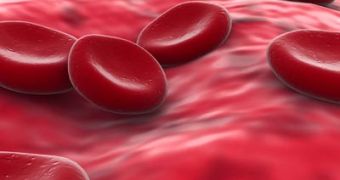According to estimates made public by the US Centers for Disease Control and Prevention, as many as one in every 88 children in this country were diagnosed with disorders belonging to the autism spectrum in 2008 alone.
Given the fact that, in roughly 20% of the total autism cases identified, behavioral therapy can really make a significant difference if and only if started as early as possible, it need not come as a surprise that trained specialists are doing their best in coming up with ways to pin-down autism within ever narrower time frames.
One company known as SypapDx now hopes that, at one point in the future, a simple blood test might be enough to determine whether or not various children have to be diagnosed with an autism spectrum disorder.
Apparently, the company behind this new diagnostic test worked on the assumption that, although autism is presently linked to both environmental and genetic factors, the fact remains that researchers have managed to isolate a molecular profile of 245 genes that are uniquely regulated in children and adults displaying autism symptoms.
Therefore, a simple blood test that relies heavily on the aforementioned findings could potentially be successfully used to identify autism, presumably with an overall accuracy of 85%. Technology Review quotes Stanley Lapidus, founder and CEO of SynapDX, who made a case of how, “It's a very long journey, and the length of that journey harms the outcomes. Every month, every year that your child is not diagnosed means the chance of behavioral therapy influencing the outcome is diminished.”
However, Dan Geschwind, presently working as a scientific advisor for SynapDX, wished to emphasize that, “This whole proposition of looking for blood makers is not without significant risk. It's worth looking for, but it doesn't mean that we will find them.”
For the time being, most cases of autism are identified when the child is about four and a half years old – in spite of the parents' beginning to show concern when their kid is roughly 19 months old – so the development of such a blood test would come as good news indeed.

 14 DAY TRIAL //
14 DAY TRIAL //